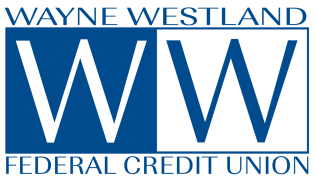Your house and yard aren’t the only things that need a little extra attention this spring – so do your finances. Spring is the perfect time to take a step back and look at the bigger picture and tend to the financial areas that need help. We have eight tips to help you spring clean your finances:
- Declutter
All of those bills and statements pile up over the years. It’s time to go through each one and determine whether you should pitch it or keep it. It’s a no-brainer that you need to keep vital documents like birth certificates and social security cards forever, but what about your tax returns or loan documents? Check out this handy guide from Consumer Reportsthat outlines how long you need to keep various paperwork. - Shred It
The best way to prevent fraud is to shred all of those documents and paperwork you’re throwing out.If you don’t have a paper shredder, it may be time to get one. It’s a small investment to make for peace of mind when disposing sensitive information. Don’t forget you can always stop by the WWFCU lobby and put your papers in our Shred It boxes. They get collected once a week for shredding. - Take a Video
Thanks to our handy smartphones, taking a video of your home and its contents is super easy. This is something you should do every year. Why? In case of theft, fire or flood, you’ve got proof of your belongings for insurance claims. Be sure to get the brand names and serial numbers for expensive electronics or larger items like appliances. Once you’re done, store the video on a cloud server so it’s safe, no matter what happens to your home. - Get Tech Savvy
Your smartphone can be useful beyond selfies and the aforementioned property videos. There are apps out there that will help you budget and stay on top of bills. If you’re a WWFCU member, you should download CardNavwhich lets you manage how, where and when your debit and credit cards are used. Our online/mobile bankingalso lets you pay bills electronically and transfer funds. - Check Your Credit
Your credit report also needs a little spring cleaning each year. Get your free annual credit reportand closely look at each item on it. Look for any errors or negative items that may impact your score and dispute any mistakes with the credit reporting agency. You can also see if you need to make any changes in the future like using your cards less or reducing the amount of cards you have. - Review Insurance
Unfortunately, insurance can be one of those “get it and forget it” items. We sign up for our home or auto insurance and don’t think about it again till we need to file a claim. It may be time to shop around to make sure you’re getting the best price. You’ll also want to make sure you have the right coverage. Circumstances can change, like adding a new driver or making major renovations to your home. Take the time to make sure you’re covered. - Update Beneficiaries
This one can go hand-in-hand with checking your insurance. Life milestones like marriage, divorce and kids happen and it may be time to update your beneficiaries on things like life insurance or investments. Go through each policy and/or account to make sure the right people are listed as beneficiaries. Also, make sure their contact information and social security numbers are correct while you’re at it. - Inspect Estate Documents
Hopefully, you have a will, trust and/or estate plan in writing – just in case. If not, this is the perfect time to put one together. Use your attorney to help you do this. There are also plenty of reputable online legal programs that can walk you through the process. Ideally, the people you have listed as powers of attorney or personal representatives are in good health and are willing to take on this important role. Also, be sure you have the correct heirs and distributions listed in your will/trust/estate plan. Here’s some useful information from AARPon creating a will.


